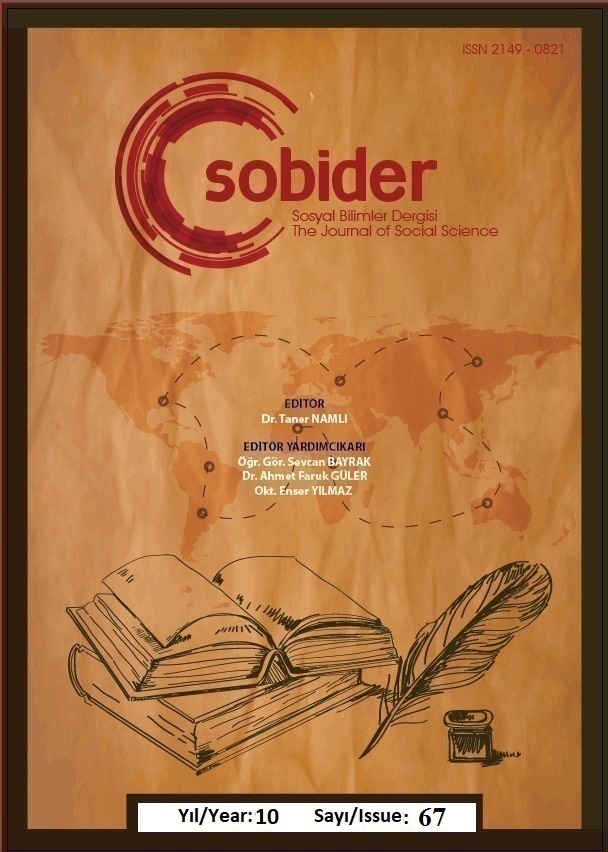Author :
Abstract
Türk modernleşmesinin en önemli ayağı olan ve radikal bir değişimi hedefleyen Cumhuriyet modernleşmesinin önemli çatışma alanlarının başında din konusu gelmektedir. Gündelik yaşamda erken Cumhuriyet döneminde yaşanan değişim, çatışma, politik tartışmaların izlerini takip edilmesinde romanlar önemli veriler sunmaktadır. Tarık Buğra’nın Dönemeçte romanı Türk modernleşmesinin başka bir evresi olan çok partili hayata geçişin taşrada sosyal, politik, kültürel ve dini veçhelerinin gündelik yaşamdaki yansımalarını sunmaktadır. Romanda dini-kültürel geleneksel unsurların Cumhuriyet modernleşmesinin radikal değişim projelerle çatışma, uyum ve dönüşüm izlerini kasabada aydın, eşraf ve halk katmanlarında görünümleri ülkenin dönemecini simgelemektedir. Aydın konumundaki kasabanın memur kesimi halkın ve toplumun sorunlarına duyarsızlıkları ile yabancılaşmış aydın profili çizmektedir. Diğer taraftan esnaftan arif-sufi bir karakter olan Fakir Halid’in devlet ve milletin geleceğine ilişkin duyarlılığı ile Doktor Şerif’i siyasete yönlendirmesi modernleşmenin iç dinamiklerle devamlılığını göstermektedir. Makalenin amacı Dönemeçte romanı örneği üzerinden dinsel ve modern yapı çatışmasının sosyal, kültür, politik, hayatın anlamı ve yozlaşması gibi konularda nasıl farklılıklar ürettiğinin analizidir.
Keywords
Abstract
Religion is one of the most important areas of conflict in Republican modernization, which is the most important pillar of Turkish modernization and aims for radical change. Novels provide important data in following the traces of changes, conflicts and political debates in daily life during the early Republican period. Tarık Buğra's novel Dönemeçte presents the reflections of the social, political, cultural and religious aspects of the transition to multi-party life, which is another phase of Turkish modernization, in daily life in the provinces. In the novel, the appearance of the traces of conflict, harmony and transformation of religious-cultural traditional elements with the radical change projects of Republican modernization in the town's intellectual, gentry and public layers symbolizes the turning point of the country. The civil servants of the town, who are the intellectuals, draw an alienated intellectual profile with their insensitivity to the problems of the people and society. In other respects, the fact that Fakir Halid, an intellectual-sofi character from the tradesmen, directs Dr. Şerif to politics with his sensitivity towards the future of the state and the nation shows the continuity of modernization with internal dynamics. The purpose of the study is to analyze how the conflict between religious and modern structures produces differences in social, cultural, political, meaning of life and corruption through the example of the novel Dönemeçte.





